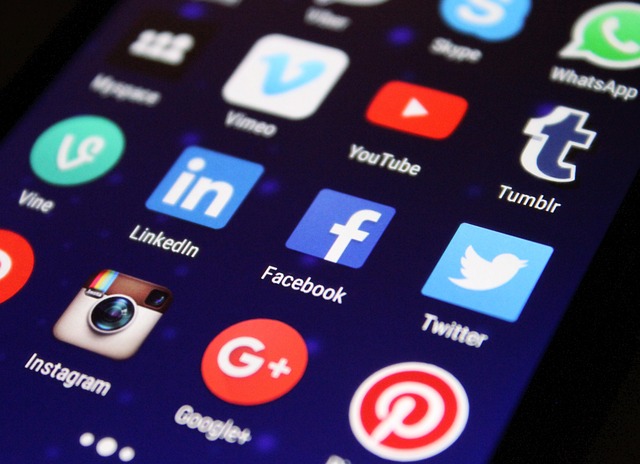Social media in hiring has transformed traditional recruitment by providing detailed candidate profiles beyond resumes. Platforms like LinkedIn, Twitter, Instagram, and Facebook offer insights into skills, interests, and personal brands. Employers use social media to assess cultural fit, soft skills, and personality traits, fostering a more dynamic and inclusive job market while expanding their talent pool through employee referrals and targeted ads. However, privacy concerns require careful handling during background checks.
In today’s digital era, social media has emerged as a powerful tool in the hiring process. This article explores how organizations are leveraging platforms like LinkedIn, Twitter, and Facebook for various aspects of recruitment, from initial candidate screening to comprehensive background checks. Discover how employers use social media profiles to gauge potential, weed out unsuitable applicants, expand their hiring pool through networking, tap into employee referrals, promote diversity initiatives, and verify online identities.
- Social Media Profiles: A Window to Candidate Potential
- Online Presence: Weeding Out Unsuitable Applicants
- Digital Networking: Expanding Hiring Pool
- Employee Referrals: Leveraging Social Connections
- Diversity Initiatives: Inclusive Recruitment Strategies
- Background Checks: Verifying Online Identities
Social Media Profiles: A Window to Candidate Potential

Social media profiles have become a valuable resource for employers and recruiters, offering a unique window into candidate potential beyond traditional resumes. Platforms like LinkedIn, Twitter, Instagram, and Facebook provide a wealth of information about an individual’s skills, interests, and personal brand. For instance, a LinkedIn profile can showcase professional experience, educational background, and industry connections, giving hiring managers insight into the candidate’s expertise and network.
Moreover, social media posts and interactions reveal personality traits, values, and communication styles. Engaging content or consistent activism on certain issues can indicate passion and drive. Conversely, poor digital citizenship, such as offensive comments or inappropriate content, may raise red flags. Thus, in today’s digital age, employers often use social media to assess not just qualifications but also cultural fit and overall candidate suitability.
Online Presence: Weeding Out Unsuitable Applicants

In today’s digital era, an organization’s online presence plays a pivotal role in the hiring process. Social media platforms have become invaluable tools for recruiters, offering a glimpse into candidates’ personalities and professional fit. By engaging with potential applicants on these channels, companies can weed out unsuitable candidates based on values alignment, cultural fit, and overall suitability for the role.
Social media provides a platform to assess not just technical skills but also soft skills, such as communication, creativity, and problem-solving abilities. Recruiters can review a candidate’s posts, comments, and interactions to gauge their personality traits, interests, and how they engage with others—all valuable insights that contribute to making informed hiring decisions in the social media in hiring landscape.
Digital Networking: Expanding Hiring Pool

Social media has transformed traditional networking, especially in the realm of hiring. Platforms like LinkedIn have become a vast digital landscape where employers can now reach a global talent pool with just a few clicks. This shift empowers businesses to expand their search beyond geographical boundaries, allowing them to find and attract skilled candidates from diverse backgrounds.
Through targeted job postings, companies can leverage social media’s power to connect with potential employees actively seeking opportunities. Additionally, these platforms facilitate direct communication, enabling recruiters to screen applicants more efficiently. The use of social media in hiring not only accelerates the recruitment process but also provides a platform for candidates to showcase their skills and experiences, fostering a more dynamic and inclusive job market.
Employee Referrals: Leveraging Social Connections

In today’s digital age, social media platforms have become invaluable tools for various aspects of business, including employee referrals. Organizations are recognizing the power of their existing networks and leveraging them to enhance hiring processes. By tapping into their employees’ personal connections, companies can source potential candidates who may not be actively seeking job opportunities but fit the ideal profile. This strategy, often referred to as “referral programs,” takes advantage of the vast social media networks that workers have established, thereby expanding the talent pool beyond traditional job boards and recruitment agencies.
Social media in hiring allows for a more organic approach where satisfied employees can share job openings with their friends, family, or acquaintances. This method has proven to be successful as it introduces companies to passive candidates who might possess unique skill sets or diverse backgrounds. As a result, social media referrals can lead to better diversity and inclusion efforts, providing an advantage in the competitive market for top talent.
Diversity Initiatives: Inclusive Recruitment Strategies

Social media platforms have become a powerful tool for organizations looking to implement diverse and inclusive recruitment strategies. By leveraging these channels, companies can reach a broader candidate pool, especially among younger demographics who are often active users. Diversity initiatives on social media involve showcasing an organization’s commitment to inclusivity through authentic content that highlights existing diverse teams and their experiences. This approach helps attract candidates who value diversity and represent various backgrounds, fostering an inclusive work environment.
In terms of social media in hiring, companies can utilize targeted ads, employee testimonials, and behind-the-scenes glimpses into their culture to appeal to a diverse range of applicants. Platforms like LinkedIn, Twitter, and Instagram offer robust analytics, allowing recruiters to track the effectiveness of their campaigns and measure diversity gains over time. This strategic use of social media not only enhances hiring processes but also contributes to building a more inclusive workplace culture from the ground up.
Background Checks: Verifying Online Identities

In today’s digital era, employers are increasingly leveraging social media platforms as a tool for background checks during the hiring process. This shift is driven by the need to verify online identities and gain insights into potential candidates’ personal brands. By exploring public profiles on sites like LinkedIn, Twitter, or Facebook, recruiters can assess professionalism, communication skills, and even a candidate’s cultural fit based on their online activities and interactions.
Social media in hiring offers both advantages and challenges. On one hand, it provides a wealth of information that traditional methods might miss. On the other, it raises privacy concerns and requires careful navigation to ensure fairness and legality. Employers must balance these factors, utilizing social media as a supplementary tool while adhering to data protection regulations.
